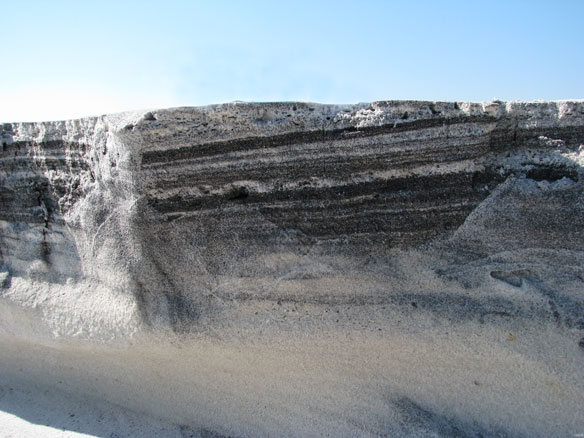
Oiled sediment. This photo shows the swash zone at USGS sampling location MS-39 on East Ship Island, MS. Waves have cut a steep section into the sand, revealing alternating layers of clean and sticky organic-rich sand that are visible after low tide. (The swash zone is the zone that is alternately covered and exposed by waves.) Captions and Photo source: Shane Stocks / USGS
Excerpts;
A team of University of South Florida researchers studying the impact of the Deepwater Horizon oil spill on northern Gulf beaches say areas just offshore from some of Florida’s most heavily oiled beaches appear to be free of visible oil contamination in the sediments.
The update from the USF Coastal Research Laboratory, led by Geologist Ping Wang, are significant because they allay one of the chief concerns among coastal researchers: that oil which might have sunk just out of sight offshore could be easily stirred up by a storm and be washed onto beaches…









